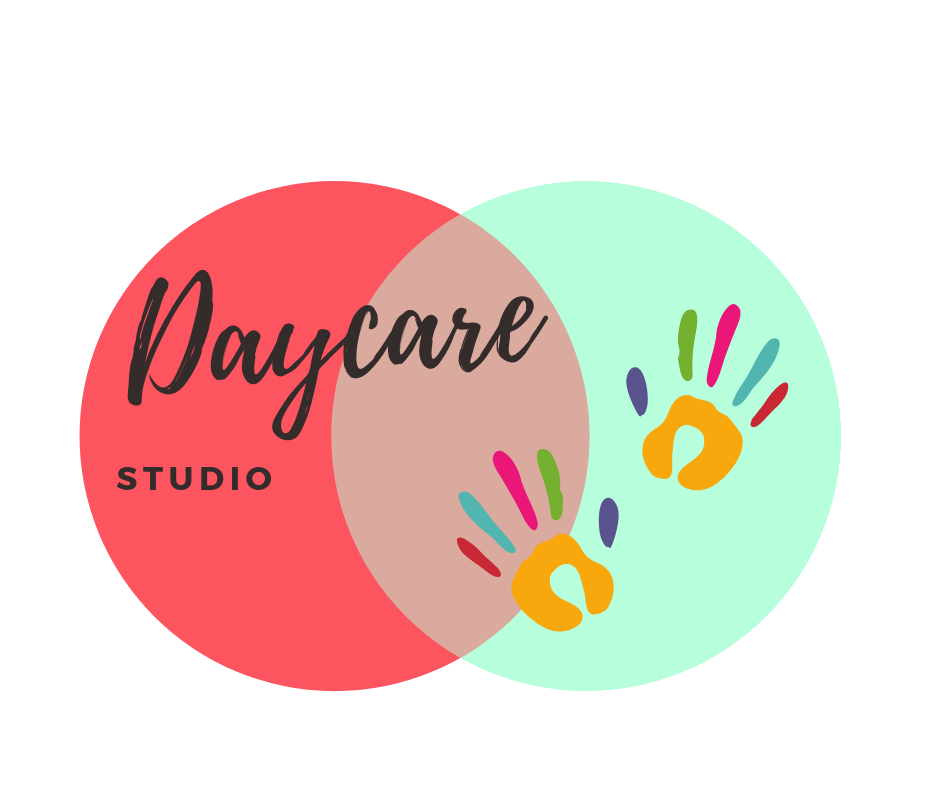48 Field Trip Ideas: Your Guide to Safe and Fun Outings and In-House Activities for Your Childcare Center
This post may contain affiliate links, which means I'll receive a commission if you purchase through my link, at no extra cost to you.Field trips are a wonderful way to enrich children's learning experiences. They offer a break from the regular routine, providing new environments where kids can explore and learn. Parents and kids love them because they are fun, exciting, and often educational.
Before we get started, If you're new to my site, remember to snag my FREE Interview Guide to hiring quality staff for your program before you leave!
Now let's dive into 48 Field Trip Ideas: Your Guide to Safe and Fun Outings and In-House Activities for Your Childcare Center
Field trips can spark curiosity and provide hands-on learning opportunities that are especially beneficial during the summer when keeping kids engaged can be more challenging. These outings help children develop social skills, learn about their community, and create lasting memories.
I know sometimes we’re at a loss for what field trips to plan. Don’t worry, I’ve got your back! Today, I'm sharing 48 fantastic field trip and in-house field trip ideas to keep the kiddos entertained and learning. But first, let’s talk about how to ensure safety and follow your state’s guidelines for field trips.
The Importance of Safety
Field trips can be an exciting part of the childcare experience, but it’s important to prioritize safety and follow your state’s regulations. Keeping our little ones safe ensures that they can enjoy these experiences to the fullest while giving parents peace of mind. Here are some essential safety tips to help you prepare for a smooth and enjoyable field trip.
Permission Forms and Transportation Forms
Using a permission form is a must! A permission form or slip lists all the trip details and requires a parent’s signature. Make sure to list any items children need to bring on the permission slip, such as a water bottle, sack lunch, comfortable walking shoes, sunscreen, etc.
Your state probably has a transportation form you also need to fill out with all the kids’ names on the trip, including the times you loaded the vehicle, arrived at the destination, and returned, with signatures of the attending staff.
Preparing the Vehicle
Before heading out, inspect your vehicle to ensure it’s full of gas and running great. Have an emergency book with all the kids' emergency information and any other forms required by your state’s licensing department. Make sure to have a first aid kit on board. If you’re transporting younger children, ensure car seats are installed correctly. This step is essential for ensuring the safety and comfort of all children during the trip.
Matching T-Shirts
Consider getting matching t-shirts made with your center or program's name and phone number on them. This makes it easy to spot your group and keeps everyone looking uniform. You can have these designed online and shipped directly to you.
There are many t-shirt design companies. You can either pass the charge onto the parents or have the shirts be property of the center to wash and reuse. If you prefer not to invest in shirts, another option is to require the children to wear a certain color t-shirt. Pick something bright like neon orange or neon green.
Some centers put the children’s names on the outside of the shirt using a label or masking tape. However, for safety reasons, we prefer to place the children’s names inside the back of the t-shirts where the tag normally is. This way, not just anyone can call them by name and pretend they know them. Be sure to check with your state on their specific requirements.
Staff & Chaperones
Make sure you have plenty of help and stay within your field trip required staff to student ratios. Having parents volunteer to chaperone is always a plus. Remember to count, count, count! Make sure to do headcounts often and know your numbers! Regular headcounts help ensure that no one gets lost and everyone stays safe. For older children, implementing a buddy system can be very effective.
Itinerary
Having a planned itinerary helps ensure the best experience. Knowing the schedule keeps everything on track and minimizes confusion. A well-organized itinerary makes the day run smoothly and ensures that all planned activities are covered.
Download Your Free Field Trip Permission Form Template!
To help you get started, I’ve created a permission form template you can download and use for free. It includes all the information you need to ensure a safe and organized trip.
Now for the Fun Part: Field Trips and In-House Field Trip Ideas
Field Trips
Local Zoo: Many zoos offer discounted rates for groups and provide educational programs for kids. Check with your state for age requirements, but in our center, we only take children 4 years and older.
Public Library: Libraries often have storytimes, craft sessions, and special reading programs.
Community Park: Parks are great for outdoor play, picnics, and nature walks.
Farmers' Market: A trip to the farmers' market can be a fun way to learn about local produce and healthy eating.
Community Garden: Visit a community garden to learn about planting, gardening, and where food comes from.
Local Historical Site: Explore a nearby historical site to learn about local history and culture. This can be especially engaging for older kiddos.
Splash Pad: Many parks have splash pads that provide a fun and safe way for kids to cool off.
Children's Museum: Children's museums often have interactive and educational exhibits specifically designed for young children.
Pet Store Visit: Arrange a visit to a pet store for a mini-animal encounter and to learn about pet care.
Local Bakery Tour: Some bakeries offer tours where children can see how bread and pastries are made.
Botanical Garden: A visit to a botanical garden can be a great way to learn about different plants and flowers.
Nature Center: Many nature centers have educational programs about local wildlife and ecosystems.
Airport Tour: Some small airports offer tours where children can learn about airplanes and watch them take off and land.
Pottery Studio: Some pottery studios offer group sessions where children can create their own pottery pieces. Research to see if they can come to your location.
Volunteer at an Animal Shelter: Spend time with animals at a shelter and learn about animal care and rescue.
Build-a-Bear Workshop: Organize a trip to a Build-a-Bear store where children can create their own stuffed animals.
Movie Day: Take advantage of local theaters' movie programs, where they show family movies at discounted rates. Research local theaters for availability.
Bowling: Many bowling alleys offer group rates and child-friendly activities.
Skating: Whether roller skating or ice skating, this is a fun and active outing for kids.
Amusement Park: If you have an amusement park nearby, it's a great option for a special day trip. Research local options for group discounts.
Nature Hike: Organize a guided nature hike in a local park or nature reserve.
Farm Visit: Visit a nearby farm to learn about agriculture and meet farm animals.
Planetarium: Take a trip to a planetarium for a star show and astronomy lesson.
Aquarium: Explore a local aquarium to see and learn about marine life.
Sports Event: Attend a local sports game, such as minor league baseball or a college game.
Science Center: Visit a science center with interactive exhibits and hands-on activities.
Local Theater: Watch a children's play or puppet show at a local theater.
Horseback Riding Stable: Find a local stable that offers horseback riding lessons or pony rides for children.
In-House Field Trips
Fire Truck Visit: Arrange for a fire truck to visit your center for a demonstration and safety talk.
Mobile Planetarium: Some companies bring inflatable planetariums to schools and childcare centers, offering a stellar educational experience. Research local providers.
Reptile Show: Hire a reptile expert to bring in various reptiles for an educational show, allowing children to learn about and interact with different species.
Cultural Day: Invite parents or community members to share their culture through stories, music, and food.
DIY Camp Day: Set up tents, have a "campfire" with storytime and s'mores, and engage in camp-themed crafts and games.
Guest Storyteller: Invite a professional storyteller or local author to entertain and educate with engaging stories.
Puppet Show: Hire a puppet theater company to perform a fun and educational puppet show at your center.
Music Day: Invite a local musician or band to perform and teach children about different musical instruments.
Cooking Class: Bring in a chef to conduct a hands-on cooking class where kids can make their own simple, healthy dishes.
STEM Workshop: Host a science, technology, engineering, and math (STEM) workshop with interactive experiments and activities.
Magician Visit: Bring in a magician to entertain the children with magic tricks and illusions.
Traveling Petting Zoo: Hire a traveling petting zoo to visit your center, allowing kids to interact with and learn about different animals.
Clown Visit: Invite a clown to perform and interact with the children, adding a fun and festive atmosphere.
Ceramics Painting: Hire a company that brings ceramics and painting supplies to your location, allowing children to paint their own ceramics.
Gardening Workshop: Bring in a gardening expert to help children plant their own mini gardens.
Yoga Session: Invite a children's yoga instructor to lead a fun and relaxing yoga class.
Dance Party: Hire a dance instructor to teach kids some new dance moves and have a dance party.
Art Class: Bring in a local artist to lead a painting or drawing class.
Storybook Character Visit: Arrange for a performer dressed as a popular storybook character to visit and read to the children.
Fitness Fun Day: Organize a day of physical activities and games with a fitness instructor.
Conclusion:
Let’s make these activities unforgettable for our kiddos! Be sure to check your state’s regulations and Google some of the ideas I’ve listed to see what’s available in your area. Not all of them will be available everywhere, but with a little research, you can find the perfect activities to keep the children engaged and learning. And of course, have fun and stay safe!
Here are some other articles packed with valuable content you are sure to enjoy:
10 Ways To Increase Revenue In Your Daycare Business
6 Must-Do’s To Effectively Communicate To Staff
How To Avoid Burnout in Childcare
How To Screen Families For Your Daycare
6 Tips To Ace Your Licensing Inspections
30 Daycare Policies You Need in Your Parent Handbook
Important Daycare Forms You Need For Your Childcare Business
How To Deal With Parents Who Consistently Pay Tuition Late!
Download my FREE Family Screening Guide to select the families right for you.
Download this guide to help you carefully accept the right families and avoid the high-maintenance ones. Includes 13 questions and a Family Information Card for easy follow-up.
Grab my FREE Daily Schedules for Infants, Toddlers, & Preschoolers!
Download 3 PDF schedules designed for each age; Infants, Toddler, and Preschoolers. A Canva link is provided to edit the schedules for your program. It’s absolutely free and only takes 5 seconds!
Download my FREE Daycare Starter Guide to start your own childcare business.
If you don’t know where to start, this guide is perfect for you! Click the button to get instant access. It’s super easy and absolutely free!












